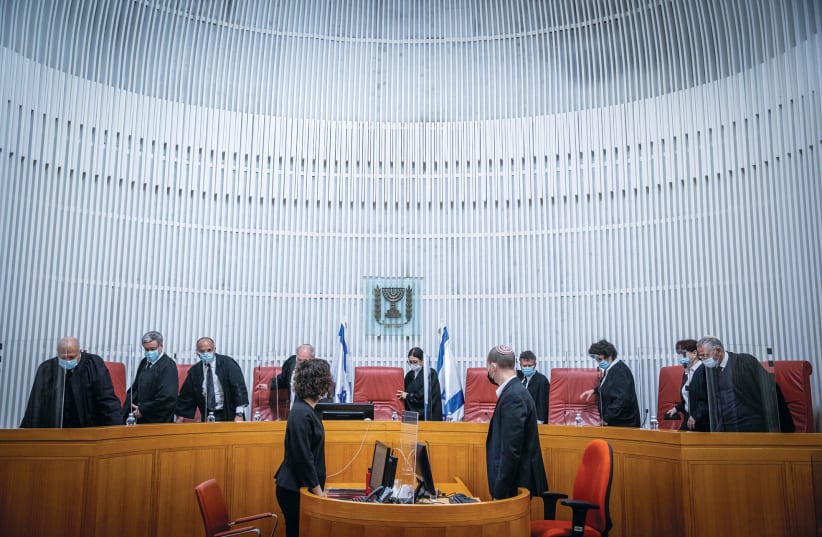This week’s High Court of Justice ruling is another, particularly dramatic milestone in the struggle between the branches. The issue at hand is a stable from which the horses have already fled: The petitioners sought to repeal legislative amendments designed to delay the dissolution of the Knesset, which has since been replaced by a new one, and increase the state budget via temporary order – a budget that has already been implemented. Although it may appear to have been rendered moot, this is in fact one of the most important rulings ever handed down in the State of Israel.
The legal question is whether the High Court has the authority to nullify a law enacted as a Basic Law. As we know, the High Court can – and, in moderation, does – exercise judicial review, invalidating regular laws found to contradict a Basic Law. However, until now, the court had never invalidated a Basic Law. And the reason for this is that it’s unclear from where the justices draw the authority to nullify Basic Laws, inasmuch as those laws stand at the top of the normative hierarchy.
Some point to the existence of fundamental principles that hovers above the normative Israeli system, e.g. “natural law,” “international law,” or the Declaration of Independence, which ostensibly allow nullification of even Basic Laws. But, in practice, it has never been established that these are indeed fundamental principles that the Basic Laws may not contravene.
As a result of this, the Knesset has developed a means of circumventing judicial review: It crowns laws as “Basic Laws” to ensure that the last word on certain matters will be its own.
THE JUSTICES behind the majority ruling, led by the court’s president, oppose this practice. They hold that, when the content of the law does not merit the “Basic Law” designation, that law is subject to judicial review. Thus, in this specific case, it is clear that the legislative amendments fall into the category of temporary provisions for particular political purposes, which lack constitutional standing; as such, they amount to an abuse of the Knesset’s power as a constitutive authority.
It is difficult not to accept the Court’s majority opinion when one considers the essential issue at hand: The Israeli constitution has been co-opted for fleeting political purposes, something that should not be tolerated under any circumstances. The High Court needs to stop the floodgates here. At the same time, it is similarly difficult to find fault with the minority opinion when one looks at the issue from a separation-of-powers perspective. The ruling could potentially lead to the creation, ex nihilo, of an unchecked judicial authority that changes the rules of the game.
The Knesset, by abusing its authority, and the High Court, by opening the door to judicial review of Basic Laws, are both poised over the red button that could launch a war between the branches of Israel’s government. Something that was once inconceivable – elected officials explicitly calling for the High Court’s instructions to be disregarded – has become reality. The already substantial rifts in the fabric of our democracy are widening.
The disagreement between the High Court judges has no correct answer. The very fact of bringing the issue up for legal deliberation is disastrous and could topple the walls of Israeli democracy around us. The solution has to come from a political system that, having regained its composure, will enact a Basic Law: Legislation that will define the rules of the game and safeguard them by requiring a Knesset supermajority to change them. The Basic Law would specify both the Knesset’s powers (e.g. what is a Basic Law and how is such a law enacted), and the High Court’s powers (e.g. when and how to exercise judicial review, and its limitations).
From an existential standpoint, our divided society operates on shifting sands. It urgently needs a constitutional anchor that, while not resolving our national disputes, will provide guidance on how to manage them.
The writer is president of the Jewish People Policy Institute and a professor of law at Bar-Ilan University.
